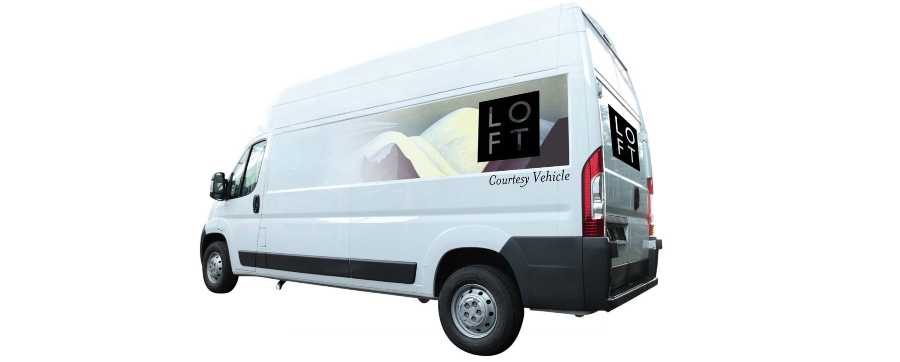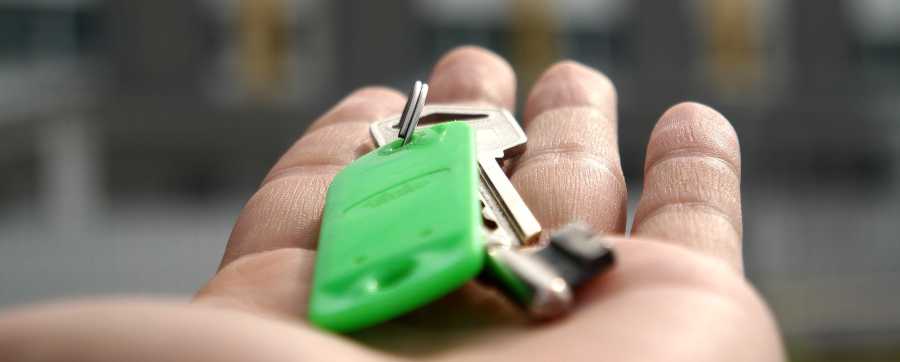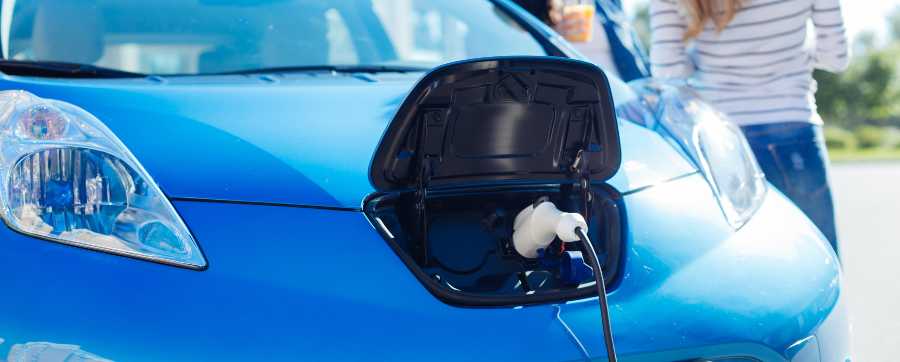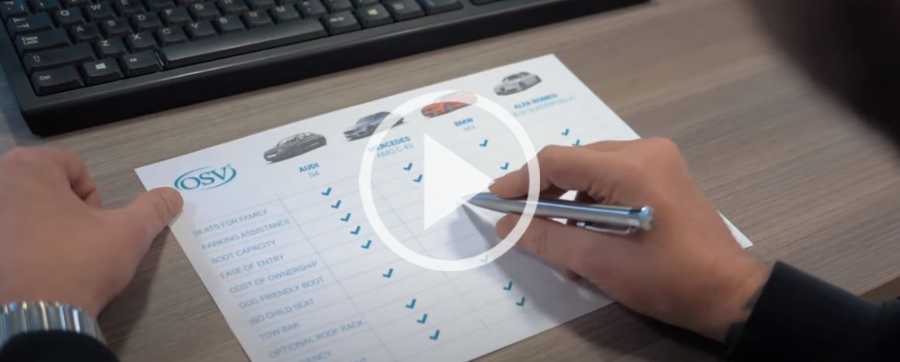5 things to know about how to lease a vehicle for business
Do you run your own business? Have you just started the search for a new business vehicle? Perhaps you’re thinking about leasing and aren’t sure how to lease a vehicle for business and if you qualify.
There is a lot to know when it comes to business leasing, and having questions is understandable. Questions like: How do I lease a vehicle for business? What do I need to do to be eligible? What credit requirements do I need to meet?
We’re here to answer all of these questions and offer you support when it comes to finding your next business vehicle.

There are a huge number of benefits to business leasing, so it’s easy to understand why it has become such an appealing option for businesses when they are looking to get a vehicle or a fleet of vehicles.
But, how do you get a business car lease? Are you eligible and how can you get a business car lease if you run a new business?

1. How to lease a vehicle for business?
So, you’ve been searching for your new vehicle, but before you start the application process you want to know the answer to the big question. Can I get a vehicle lease through my business?
There are several different types of organisations and businesses that qualify for a business lease.
If you or your business are any of the following, then you can qualify for a business vehicle lease:
- Public limited company (PLC)
- Limited Liability Partnership (LLP)
- Limited company
- Sole trader
- VAT registered business
- Charity
- Local authority
- Embassy
As you can see, there are a number of ways that you or your company can be eligible for a business lease.
2. How do you qualify for business leasing?
Whether you’re leasing a car through your business or privately, a credit check is carried out.
If you’re a business customer, then the Finance House will carry out a credit check on the business, as well as possibly the director(s) of the company.

The credit check will be carried out so that the Finance House can be sure that it is able to meet the monthly payments and going through your financial history is the easiest way to do this.
A business credit report actually tells the Finance House a lot about your company, including:
- Basic company information, including the company’s address, past addresses, suppliers and the number of years it’s been trading
- The history of the business
- Government activity summary
- Company operational data
- Industry data
- Past payment history
- Business registration information
- Any public filings including judgements and legal filings.
It’s possible that the Finance House will ask for additional information and you’ll need to be prepared to send some (or all) of the following for them to look over:
- Bank statements that show a positive net worth, likely from the previous three months
- Valid addresses and identification of the company director(s)
- An opening balance sheet – if available
Unfortunately, if you have a bad/poor credit score, or you have CCJs on your credit history, OSV will be unable to help you to get a new lease vehicle.
3. My company is new, can I get a business car lease?
Have you just started your business? If so, then it is a little more difficult to get approval for a business car lease due to the fact that your company won’t have a very long financial history. However, we can show you how to lease a vehicle for business that is new.
Without a financial history to look through, the Finance House will have to use different tools to check your eligibility for a business lease.

In order to maximise your chances of getting a business car lease, you should be prepared to provide the Finance House with all the information we have already mentioned, but you should also be prepared to go above and beyond. This may include showing them a realistic cash flow forecast. If you provide the Finance House with a forecast that is unrealistic then it won’t be taken seriously, which will impact your chances of getting a business lease.
The more information you are able to show the Finance House, the more likely you are to be able to convince them that you will be able to make the monthly payments.
4. How can I improve my company credit score?
If your company is new, or your credit score is in need of improvement there are a few ways that you can improve it, though they aren’t an immediate fix and can take some time. These include ensuring you:
- Pay all invoices on time
- Avoid court judgments, though if one does occur ensure that it is settled within one month
- File annual returns and financial accounts on time
- Register your business with a credit reference agency or directory
- Check the credit position of your suppliers to ensure that you won’t be left in a difficult situation should one go into administration
- Keep an eye on the company credit score so that when the time comes and a credit check is carried out on the business there won’t be any surprises.
It’s worth taking a look at your credit rating using one of the free online resources available, such as Experian. This ensures that you’ll know what’s on your credit report when the Finance House carries out their credit check.
5. What are the business benefits of leasing?
There are quite a few benefits when you lease a vehicle for business, which is one of the reasons why it’s so popular.
Cash flow
One of the benefits of leasing a car through your business is cash flow. No doubt you’ve heard the phrase ‘Cash is King’ when it comes to business, and it’s true. Having your cash tied up in a depreciating asset is not ideal, nor is spending a huge amount of cash in one hit. When you lease, your money is not tied up in an asset that is losing money and, quite often, the monthly payments are lower than if you got the vehicle through a purchase scheme.
Leasing vehicles for your business frees up funds so you can continue to do your daily business. You also have the freedom to put down as little or as much as you would like as an initial payment. If you would prefer to pay a larger amount initially then you benefit from lower monthly payments. If you pay a smaller amount upfront then your monthly payments will be larger. However, leasing gives you the flexibility and ability to free up money for your business.
Time-saving
This benefit is often overlooked. But it has to be said, you can save a lot of time by leasing your vehicle, especially if you go through a vehicle broker like OSV.
All you have to do is tell us about your current situation, your requirements and your budget and we’ll do all the legwork for you.
We’ll do the research using the requirements you have given us, negotiate some great deals and then show you what we’ve found. You can choose which one of the options you feel suits your purpose the best and let us know. It’s really that simple.
Running your own business can be time-consuming and this means that you don’t always have time to trawl through a multitude of vehicle websites, looking at specifications to find the right vehicle to suit your needs. If you go to a vehicle broker, like OSV, for help then this is a responsibility that we will take on. Our team of vehicle specialists will do all the hard work for you. This will give you the opportunity to get on with looking after the day-to-day running of your business.
Tax benefits
A huge benefit of business leasing is the tax benefits, these are mainly seen when you look at Contract Hire agreements, making this a hugely popular scheme for businesses.
If you’re a VAT registered business and you have a vehicle on a Contract Hire agreement then you can claim 50% of the VAT back on the monthly and initial rental in your quarterly VAT return. If you don’t use your vehicle for personal journeys then you can claim 100% back.You can also offset the rentals against your monthly tax bill, the percentage of which depends on how much CO2 your vehicle emits. If it emits less than 110g/km of CO2 then you can claim 100% back. Any more than that, however, and you can only claim 85% of the rental against profits.

When it comes to how to lease a vehicle for business, as you can see, there are several different types of companies that are eligible to get a business vehicle lease and when a Finance House requests your credit history they will get a lot of information about your business. If your business is new and therefore has a very minimal credit history it’s possible that the Finance House will ask for more documentation but with the help of the information in this article, you’ll be prepared.
At OSV we work with businesses every day helping guide them through the business leasing journey.
Fed up with looking for your next vehicle?
Need advice from an experienced Vehicle Specialist on what vehicle is right for you?
Book your FREE consultation now



